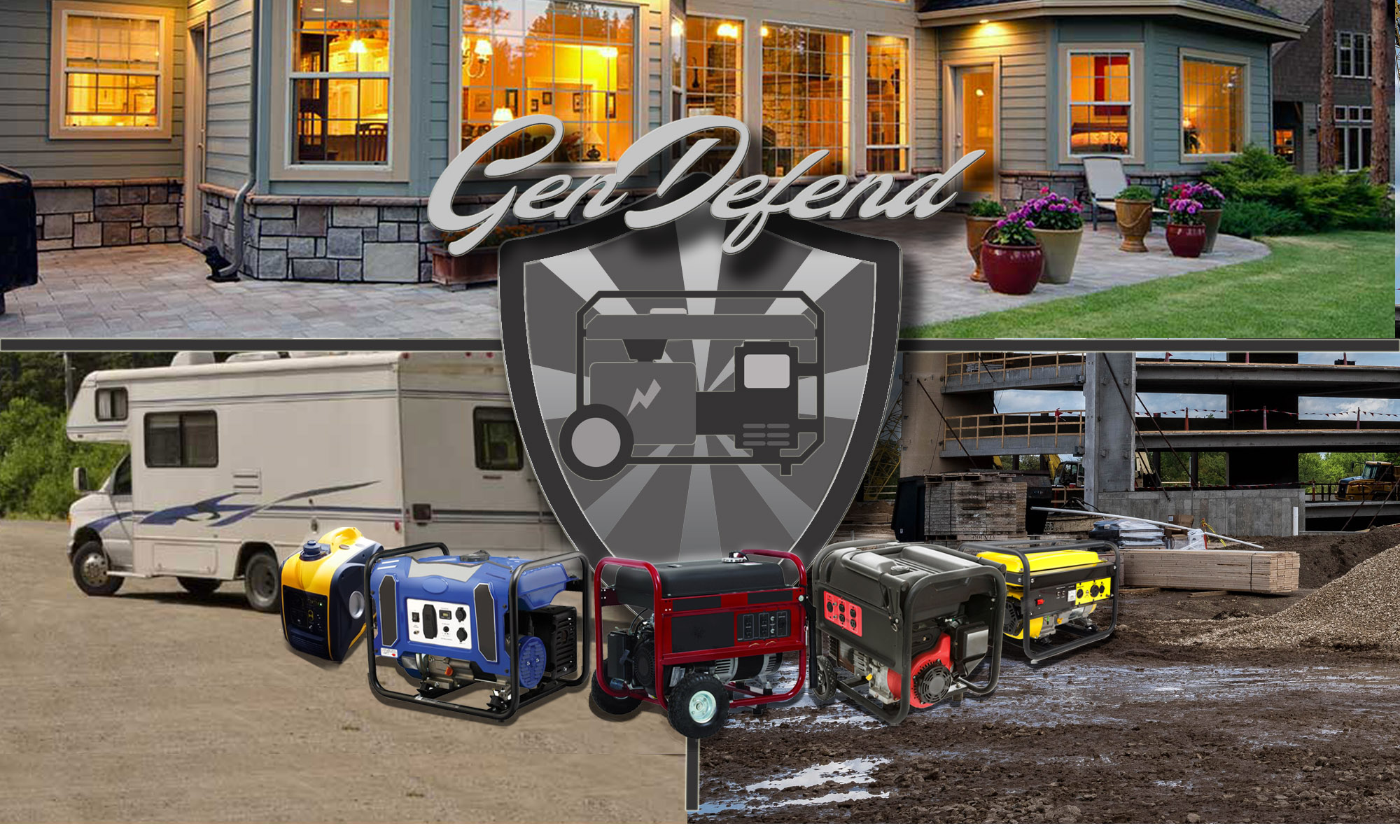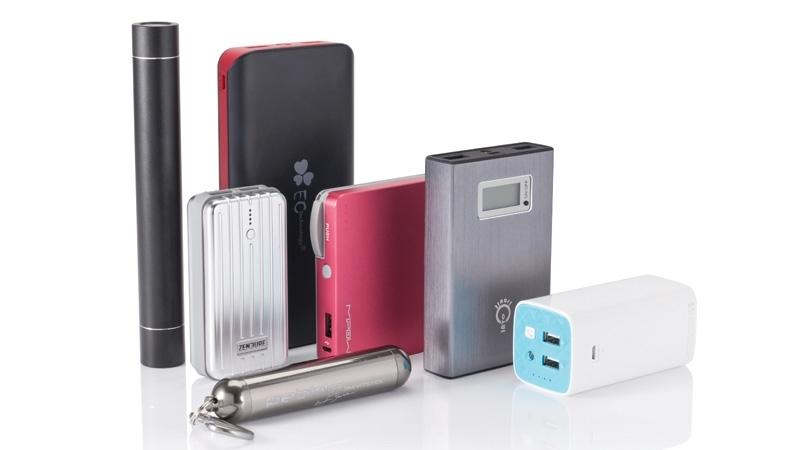
Let’s face it, nothing offsets your daily life more than bad weather, tough driving conditions, or closings and cancellations due to storms. In this winter alone, we have seen inclement weather affect so many regions of the United States; all the way from the regular storms on the Northwest, to crippling ice and snow in Florida and Texas. While traditional winter storm regions will have different needs and experiences, there are universal storm preparation tips we can all use to help through these tough winter seasons!
Before Winter Storms, Snow, or Extreme Cold Weather.
- Make a family communication plan. Your family may not be together when storms or disasters strike. It is important to know how you will contact one another, how you will get back together, and what you will do in case of an emergency.
- Communication is key. While weather can be unpredictable, you can ensure that you have as much reliable communication in place in the event of an outage or storm event.
- Make an emergency home kit with at least three days of supplies for your family.
- Keep portable heater safety in mind: Use electric heaters with automatic shut-off switches. Remember to keep portable heat sources at least three feet away from furniture, fabrics, and other flammable objects.
-
Prepare your home:
-
- Make sure your home is well insulated:
- Check to see if you have insulated storm windows.
- You can cover non-insulated or drafty windows with plastic from the inside to keep cold air out.
- You can add weather stripping around your doors and window sills to keep the warm air inside.
- Make sure you have a working carbon monoxide detector.
- Keep fire extinguishers on hand, and make sure they have not expired.
- Know how to shut of your water source and valves in case a pipe bursts.
- If you have a wood burning fireplace or pellet stove, stocking up on extra wood or pellets before a storm will help to keep you warm if winter weather knocks out your heat.
- Make sure you have your chimney cleaned and inspected every year.
- Ensure you keep extra blankets, sleeping bags and warm clothes on hand in case of longer power or heat outages.
- Make sure your home is well insulated:
-
Prepare for emergency power backup needs:
-
- Having emergency or backup power sources can be lifesavers. Investing in a standby generator, portable generator, or inverter can keep your necessary electric needs in use if you lose power for prolonged periods of time.
- Performing annual generator maintenance is required to keep your backup power supply in good working order.
- Ensure any direct home wiring or transfer switches are installed properly by a licensed electrician.
- Having emergency or backup power sources can be lifesavers. Investing in a standby generator, portable generator, or inverter can keep your necessary electric needs in use if you lose power for prolonged periods of time.
- Back-feeding electric lines can cause significant damage to your home and can be life threatening to utility workers.
-
-
- Follow CPSC guidelines and only run your generator outside, 20 feet or more from your home, open windows, or doors.
-
- More than 150 people die every year from non-fire related CO poisoning deaths. Please reference CPSC safety alert: https://www.cpsc.gov/s3fs-public/Portable_Generator_Safety_Alert_2017_5123.pdf?5zYC5oSH8WSNeBNsFMGm1L0J0.s1W07a .
-
-
- Follow manufacture guidelines for portable generators or inverters, do not run them exposed to wet weather or inclement weather without adequate protection (generator canopy shown is from www.gentent.com ).
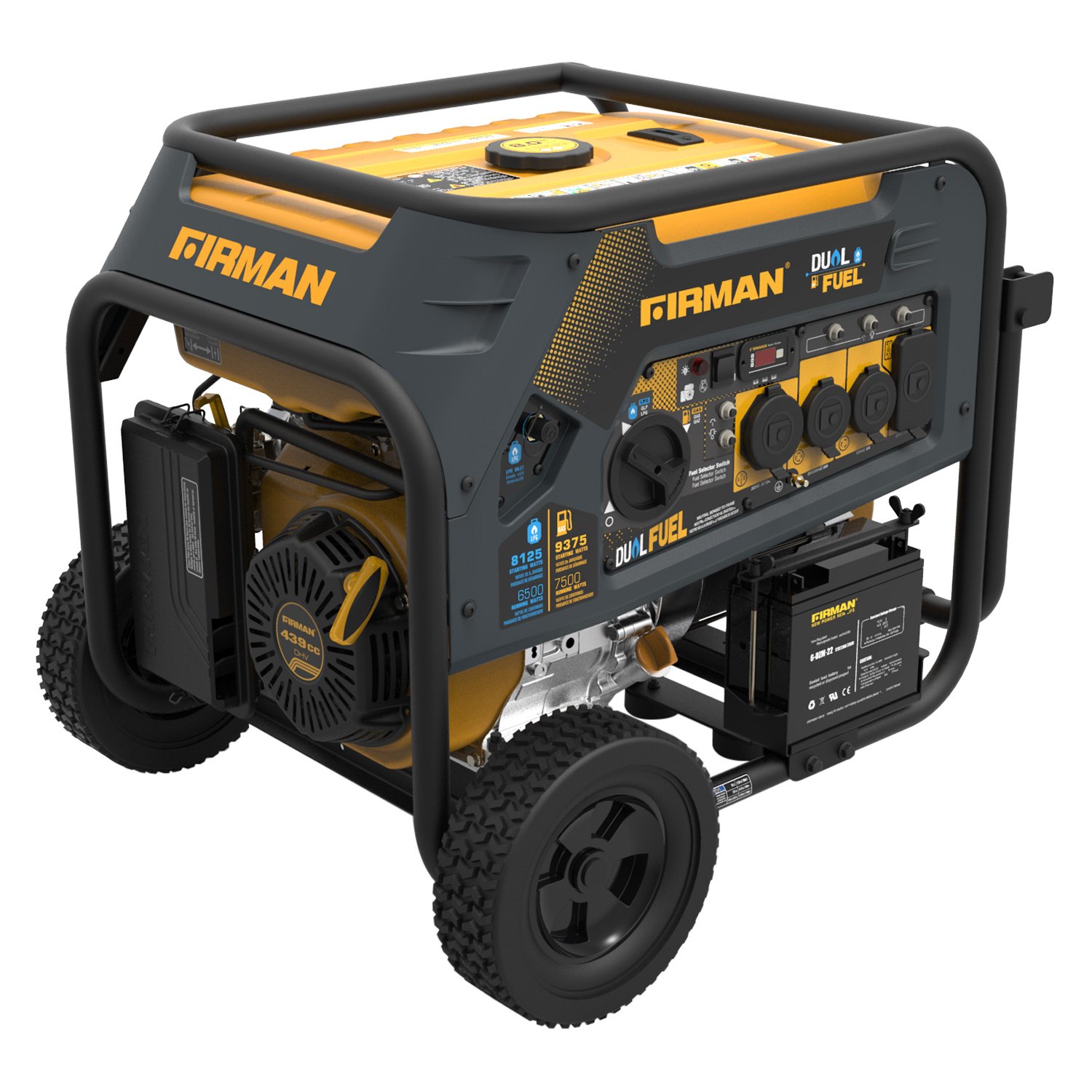
Firman H05751 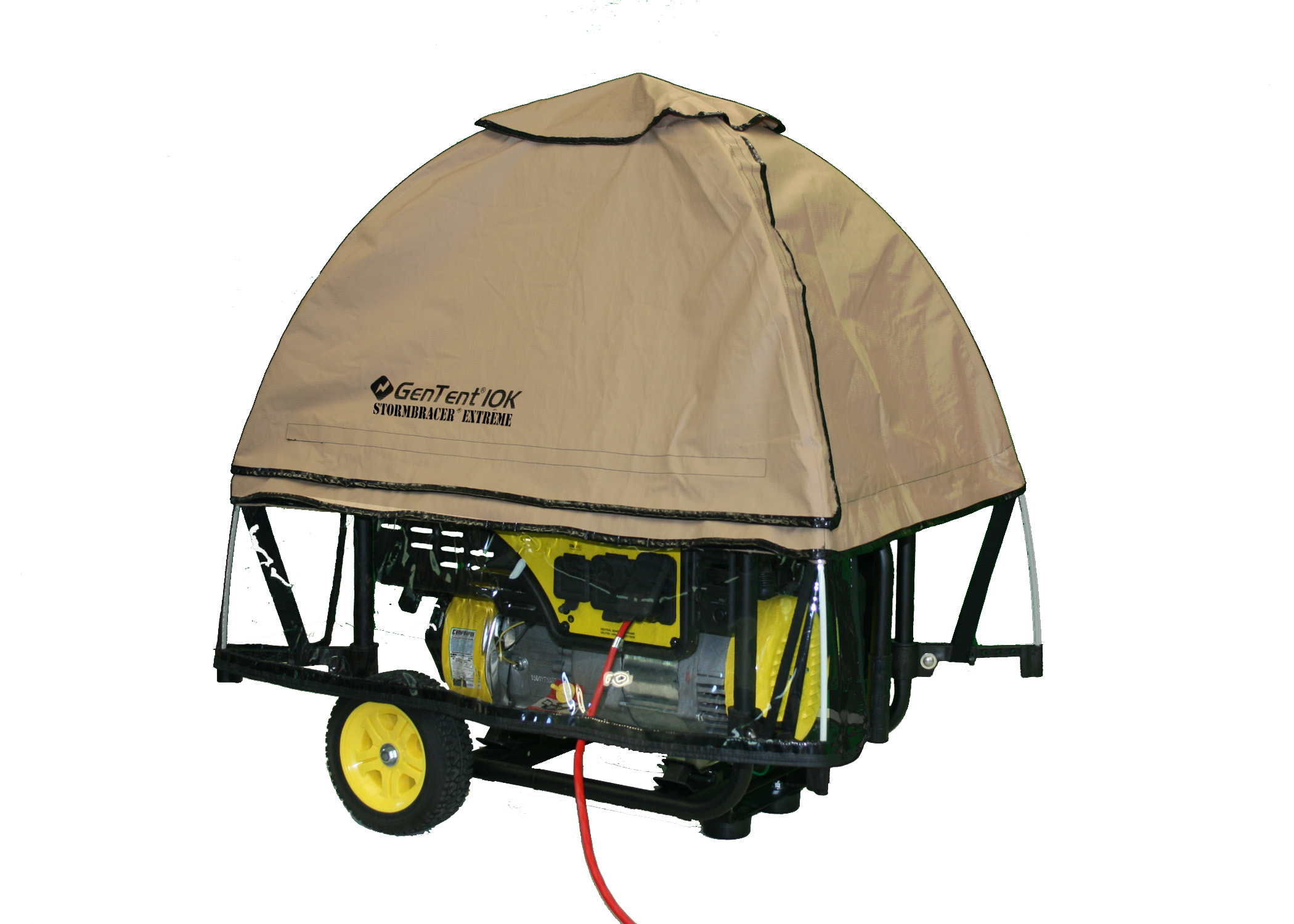
GenTent Stormbracer 10K Extreme -
- People who depend on electricity to operate life support, ventilators, or other necessary medical equipment should have plans in case power is out for an extended period.
- Plan to check on elderly or disabled relatives and neighbors.
- If you have an electric garage door opener, know how to operate the manual release lever in case you lose power.
- Do not open your refrigerator unless necessary. Try to maintain temperature when without power.
- Fill gallon pitchers or milk jugs with water and place them in the freezer to help keep food cold.
- People who depend on electricity to operate life support, ventilators, or other necessary medical equipment should have plans in case power is out for an extended period.
-
- Follow manufacture guidelines for portable generators or inverters, do not run them exposed to wet weather or inclement weather without adequate protection (generator canopy shown is from www.gentent.com ).
-
Prepare your vehicle:
-
- Inspect antifreeze, brakes, heater and defroster, tires, and windshield wipers to ensure they are winter storm ready annually.
- Fill your gas tank before major storm events.
- Add supplies to your vehicle in case of an accident or becoming stranded
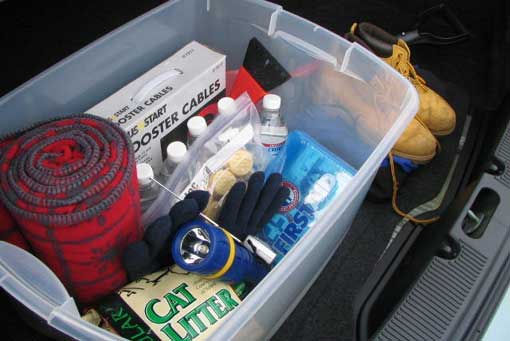
Winter Car Kit -
-
- Add a portable cell phone charger.
- Ice scraper.
- Extra blanket.
- Sand for traction.
- Jumper cables.
-
-
-
-
- Make plans to bring your pets inside, as well as plans for care if you are without power for a long period of time.
While weather can always be unpredictable, and often threatening in the winter specifically, you can ensure that you are prepared for many potential scenarios.
–
GenDefend
